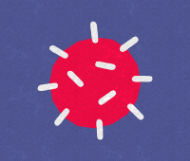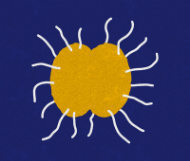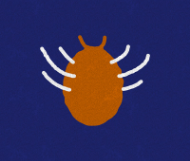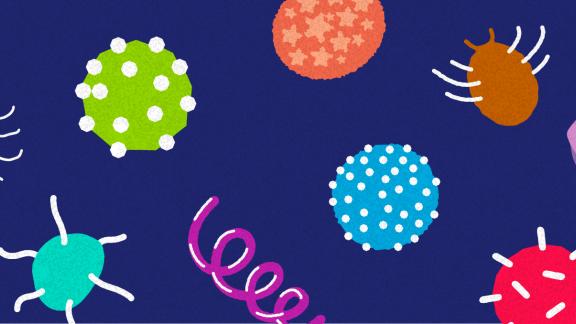What are STIs?
A sexually-transmitted infection (STI) is usually a bacterial or viral infection predominantly spread through unprotected (i.e. without a condom) sexual contact, including vaginal, anal, and oral sex. Some STIs can also be spread via blood or other bodily fluids.
Knowing how to look after your body can lead to a healthier, safer, and more pleasurable sex life. Taking care of your own sexual health and practicing safer sex can protect you from STIs, including HIV. We've created a series of blogs to help you understand some of the more common STIs and their associated symptoms, treatment, and prevention.
Learn more...

Chlamydia
Chlamydia is a common bacterial infection, and anyone who is sexually active can catch it. Chlamydia is caused by bacteria called chlamydia trachomatis that is found in semen and vaginal fluid of people who have the infection. Some of the ways it is passed from one person to another is through vaginal, anal, or oral sex without a condom.

Genital herpes
Genital herpes is a very common virus that can stay in the body for life, but it usually doesn’t lead to serious health problems. Genital herpes is caused by the Herpes Simplex Virus (HSV). There are two types, HSV-1 and HSV-2 and both can infect the genital and anal area and also the mouth and nose (cold sores).

Genital warts
Genital warts are caused by the human papillomavirus (HPV) and are small growths or bumps that appear on or around the genital or anal area. There are over 100 different types of HPV which can affect different parts of the body. The most common way for HPV to be passed on is through skin-to-skin contact with someone who has the virus.

Gonorrhoea
Gonorrhoea is a common bacterial infection. Anyone who is sexually active can catch gonorrhoea. Gonorrhoea is caused by bacteria called Neisseria gonorrhoea that is found in semen and vaginal fluid of people who have the infection.

Hepatitis
Hepatitis can be caused by drinking alcohol or through viral infections which can be transmitted through sexual activity. There are various types of hepatitis, but only hepatitis A, B, and C can be transmitted through unprotected sexual activity.

HIV
Human Immunodeficiency Virus (commonly known as HIV) is a virus that damages the body’s immune system so it cannot fight off infections. HIV lives in the blood and some bodily fluids (semen, including pre-cum, and vaginal fluids).

Pubic lice
Pubic lice are very small, crab-like parasitic insects which live on the pubic hair and survive on human blood. Pubic lice are not necessarily sexually transmitted but are passed on through close bodily contact, including vaginal, anal, or oral sex.

Syphilis
Syphilis is caused by a bacteria called treponema pallidum and is easily passed from one person to another through unprotected vaginal, anal or oral sex or by sharing sex toys.

Trichomoniasis
Trichomoniasis is caused by a tiny parasite called trichomonas vaginalis (TV) and infects the vagina and urethra. The infection is passed on through having unprotected (without a condom) vaginal sex or by sharing sex toys.
when
Subject
HIV and STIs







